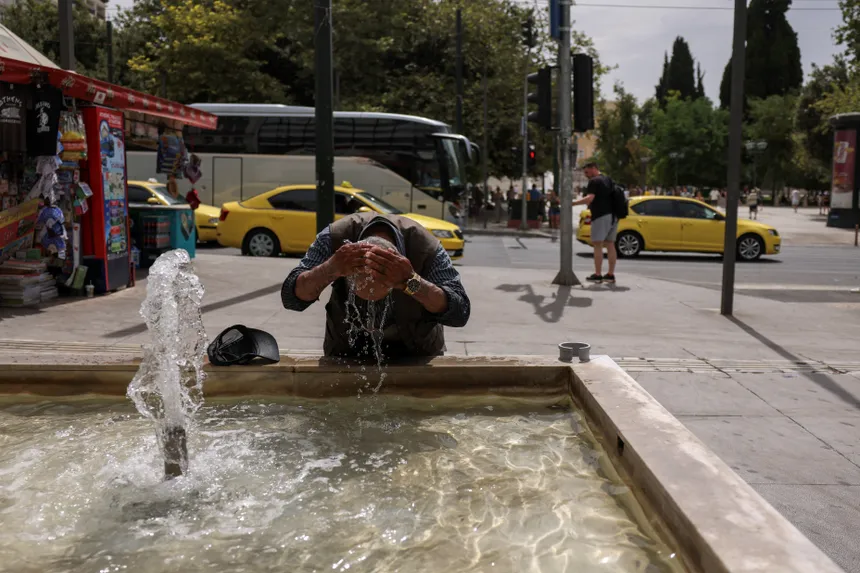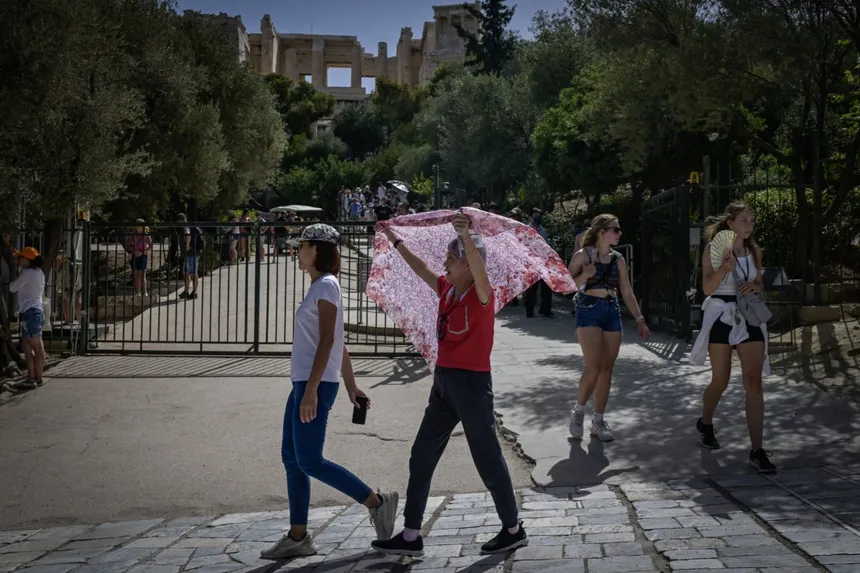Greece, known for its sweltering summers, experienced an unprecedented heat wave last week that forced authorities to take drastic measures. Temperatures soared to 45C (113F) in Syntagma Square, with the mercury likely to reach 48C (118F) on the ancient Acropolis site. The country, proud of its record as the first in Europe to appoint an official dedicated to addressing the challenges of global heating, acted swiftly to protect visitors.
The Acropolis was closed at noon on Friday to shield visitors from the intense heat, with volunteers from the Hellenic Red Cross distributing free bottles of water and first-aid rescue workers dispatched to the site. Shading was erected at the main entrance to the Golden Age temples to provide relief from the scorching sun. Authorities hoped that the media could inform visitors, many of whom were foreigners, as it was a “very difficult” day.
The heat wave proved too much for 30,000 water bottles, which were quickly handed out by the Red Cross. First-aid tents were set up to treat those who had collapsed or fainted, and 11,000 visitors managed to file through the ancient monument, often escorted by guides urging them to speed up to escape the sweltering heat. By 8 pm, when the gates closed, almost 20,000 people had visited the site, despite the challenges.
Among those who made the grueling ascent was Annali Kemp, a 53-year-old British tourist who was visibly red-faced after the climb. She and her family had to push through the crowds at times, but she was determined to experience the once-in-a-lifetime trip. “We now live in New Zealand, where there are no antiquities, so you put up with the heat,” she said. “And God, it was hot. I didn’t have any hot flushes – for the first time ever.”

Greece’s economy, heavily reliant on tourism, is taking no chances. The authorities are doing everything in their power to ensure that visitors are protected from the extreme heat. Italy, too, has been struggling with temperatures above 40C (104F), with forecasts predicting a continued rise in temperatures.
The Acropolis will be closed again on Saturday, with a spokesperson citing the need to protect the ancient stones and marbles from the heat. The reality of the climate emergency is clear, as humans and urban environments struggle to adapt to temperatures that are accelerating at an unprecedented pace. The future will be fraught with challenges, as humans and cities attempt to cope with the increasing temperatures.
As the sun set over the Attic sky, it was hard not to think of the future, when temperatures are predicted to rise by as much as 2.5C by 2050. The beautiful sunset, short of urgent action, spells menace ahead.

